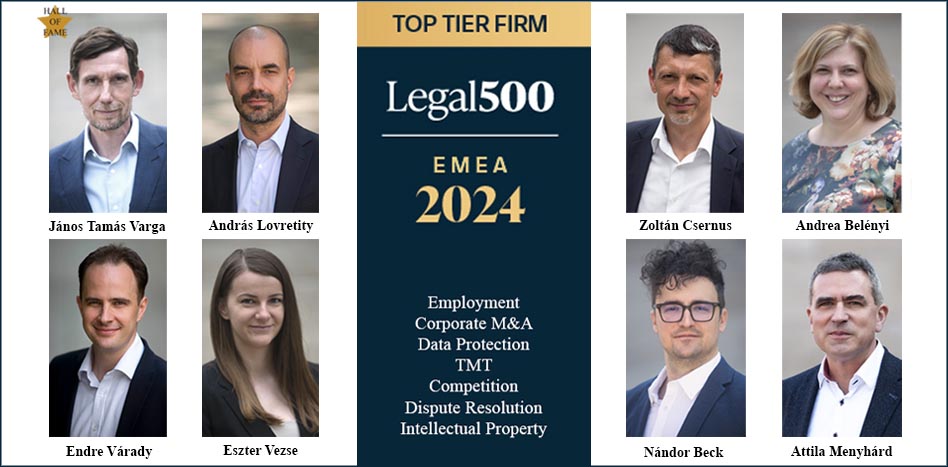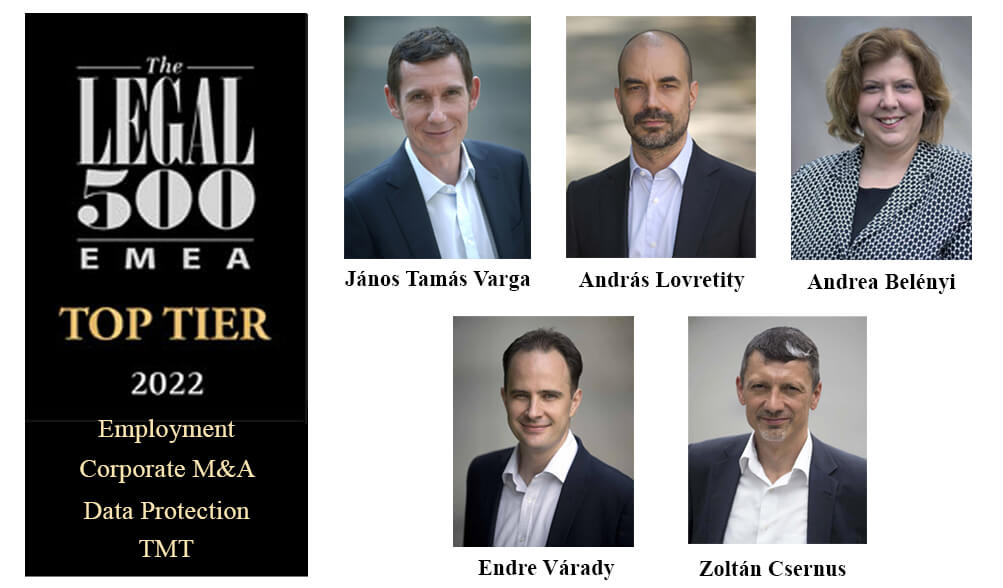Competition
"Awesome team with many layers of knowledge" – Legal500 EMEA 2025
Competition encourages development. As companies compete with each other to sell their products, many new ideas are born that inspire the entire market. However, the competition must remain fair throughout. This is what competition law helps in: it regulates the behaviour of companies and the way they act towards each other. Its rules are “rubber rules” that are filled with content by the competition authorities or the court, so every case is different and each requires a lot of creativity. But that’s why it’s so enjoyable!
Andrea Belényi
partner
“Back in the day, I used to play competitive basketball. Now sitting behind a desk, I engage in the thrills of competition law. Since every case is different, each requires a different approach. Whatever the situation, the challenge is great and serious creativity is necessary to find the appropriate solution. That is the beauty of this area of law.”
THE BIG BROTHER IS WATCHING - HOW DOES THE COMPETITION AUTHORITY WORK?
The Competition Authority works in two ways. On the one hand, business owners can be informed about what is happening in the market from the notifications, complaints or other valuable information addressed to the Authority. On the other hand, it supervises and examines markets “ex officio”. It monitors companies, professional chambers, advocacy associations in the background and, with sufficient information, launches an investigation in case of well-founded suspicion. At this point, the market participant suddenly notices that is it caught up in the middle of an official investigation and needs to provide data or needs to complete a questionnaire at the request of the Competition Authority.
Prevention
- We perform audits and screenings
- We check for any legal concerns
- During transactions, we ensure that everything is handled in accordance to the laws guiding competition
- We give informative lectures and trainings
Gathering storm
- We help identify situations of concern
- We analyze the market situation
- We describe the practice of the competition authorities and the courts
- We help create the business models which abide by the laws of competition
Help! Problems ahead!
- We participate in the competition authority proceedings
- We prepare those involved for each procedural step
- We provide advice on developing the expected and appropriate corporate behaviour
Exciting competition law
Dawn raid
The authority set up to enforce competition rules has strong procedural powers. One of its surprising options is that it may show up at businesses without any prior notice and can start to investigate there: it can collect information, copy and take documents, and seize assets.
Cartel
These are covert agreements between competitors, which are the most harmful and penalized with high fines by the competition authorities.
Fine
Competition proceedings can also result in a significant fine, which poses a serious threat to businesses. It is better for any company to prevent any suspicion than to need to explain itself in an official procedure.





